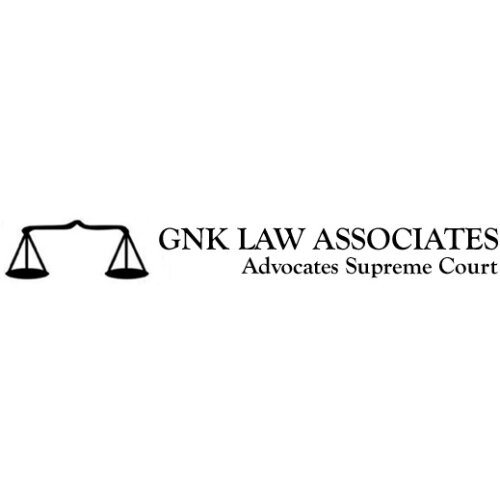Best Employment Rights Lawyers in Delhi
Share your needs with us, get contacted by law firms.
Free. Takes 2 min.
List of the best lawyers in Delhi, India
About Employment Rights Law in Delhi, India
Employment Rights Law in Delhi, India, is designed to protect the interests of both employers and employees, ensuring fair treatment and adherence to labor standards. These laws encompass a variety of aspects including wages, working conditions, termination, workplace harassment, discrimination, and safety. As India's capital, Delhi adheres to both central and state-specific labor laws that aim to promote harmonious labor relations and secure rights for both parties involved in an employment relationship.
Why You May Need a Lawyer
There are several situations where you might need legal assistance regarding employment rights in Delhi. Common scenarios include wrongful termination, wage disputes, workplace harassment, discrimination based on gender, caste, religion, or disability, non-compliance with contractual obligations, and violations of safety standards. Legal professionals can help interpret complex labor laws, guide negotiations, and represent you in legal proceedings.
Local Laws Overview
Key aspects of employment rights in Delhi are governed by a combination of central labor laws and state regulations. Important laws include the Industrial Disputes Act, 1947; the Minimum Wages Act, 1948; the Payment of Wages Act, 1936; the Employees' State Insurance Act, 1948; and the Maternity Benefit Act, 1961. These laws cover various facets such as dispute resolution, wage determination, payment mechanisms, employee health benefits, and maternity leave. Delhi also incorporates policies unique to its administrative environment, reflecting its socio-economic landscape.
Frequently Asked Questions
What are my basic rights as an employee in Delhi?
Your basic rights include receiving fair wages, safe working conditions, non-discriminatory treatment, and representation through unions. You are also entitled to leave and benefits specified by law.
How do I address workplace harassment?
Workplace harassment can be addressed through internal complaint committees. The Sexual Harassment of Women at Workplace (Prevention, Prohibition and Redressal) Act, 2013 provides mechanisms for grievance redressal. Legal action can also be pursued if necessary.
What should I do if I am wrongfully terminated?
If you believe your termination was unjust, consult with a lawyer who can help evaluate your case and guide you through legal proceedings if required. You may also seek redress through labor courts.
Am I eligible for paid leave?
Yes, employees in Delhi are entitled to various forms of paid leave, like annual leave, sick leave, and maternity leave, governed by employment contracts and statutory laws.
How is minimum wage determined in Delhi?
Minimum wage in Delhi is determined by the state government and varies based on the type of work and skill level of the employee. Regular revisions are made to ensure fair compensation.
Can a part-time employee claim benefits?
Part-time employees may be eligible for specific benefits depending on the terms of their employment contract and applicable labor laws. It is important to review employment agreements carefully.
What protection do contract workers have?
Contract workers are protected under various provisions that mandate fair wages, safe working conditions, and dispute resolution mechanisms. The Contract Labour (Regulation and Abolition) Act, 1970 applies here.
Is it mandatory for employers to provide health insurance?
Under the Employees' State Insurance Act, 1948, employers do need to provide social security and health insurance benefits, but this typically applies to organizations meeting certain criteria.
Can I form or join a union?
Yes, employees have the right to form or join trade unions and engage in collective bargaining for better working conditions and rights.
What recourse do I have against wage theft?
In cases of wage theft, legal recourse is available through labor courts. You may initially address the issue with your employer and subsequently seek guidance from a legal expert if solutions aren't forthcoming.
Additional Resources
Below are some resources and organizations that may assist you:
- Department of Labour, Government of Delhi: Offers guidance and resources on labor laws and rights.
- Labour Courts in Delhi: Handle disputes related to employment rights.
- The National Human Rights Commission: Can be consulted for discriminations and rights violations.
- Trade Unions: Can provide support on collective labor issues.
Next Steps
If you face issues requiring legal assistance with employment rights in Delhi, it is advisable to start by documenting everything related to your issue. Seek local legal counsel with expertise in employment law, and gather any contracts, emails, or records pertaining to your situation. Contact a legal aid organization if you need guidance on procedure or require affordable services. Empower yourself with knowledge of your rights to ensure fair treatment in the workplace.
Lawzana helps you find the best lawyers and law firms in Delhi through a curated and pre-screened list of qualified legal professionals. Our platform offers rankings and detailed profiles of attorneys and law firms, allowing you to compare based on practice areas, including Employment Rights, experience, and client feedback.
Each profile includes a description of the firm's areas of practice, client reviews, team members and partners, year of establishment, spoken languages, office locations, contact information, social media presence, and any published articles or resources. Most firms on our platform speak English and are experienced in both local and international legal matters.
Get a quote from top-rated law firms in Delhi, India — quickly, securely, and without unnecessary hassle.
Disclaimer:
The information provided on this page is for general informational purposes only and does not constitute legal advice. While we strive to ensure the accuracy and relevance of the content, legal information may change over time, and interpretations of the law can vary. You should always consult with a qualified legal professional for advice specific to your situation.
We disclaim all liability for actions taken or not taken based on the content of this page. If you believe any information is incorrect or outdated, please contact us, and we will review and update it where appropriate.














